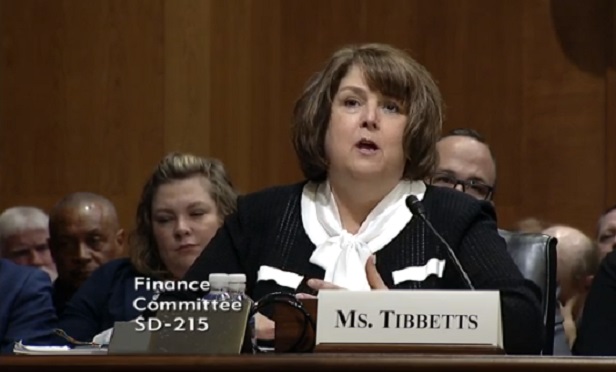
 Joni Tibbetts (Photo: Senate Finance)
Joni Tibbetts (Photo: Senate Finance)
Joni Tibbetts was the face for life insurers Tuesday at a Senate Finance Committee hearing on challenges to the U.S. retirement system.
Tibbetts, who serves as vice president of product management, retirement and income solutions, at Principal Financial Group, talked about her Des Moines, Iowa-based company's financial wellness programs, and about the new version of the Retirement Enhancement and Savings Act (RESA).
Tibbetts said RESA would help employers add and expanded retirement plan programs.
One RESA provision she promoted was the RESA lifetime income provider safe harbor section. The safe harbor provision would protect a retirement plan sponsor that used a careful process to choose a plan annuitization option provider against suits related to the annuity provider choice.
The provision "establishes realistic options to follow when selecting an annuity provider," Tibbetts said.
She said the provision would also protect the plan participants against penalties if a plan sponsor decided to drop an annuitization feature.
Susan Neely, president of the American Council of Life Insurers, submitted a written statement asking senators for swift adoption of RESA.
By passing the RESA bill, "Congress has an opportunity to enact comprehensive legislation that will help more people retire with peace of mind — increasing the availability, accessibility and affordability of retirement security products for all Americans," Neely said in the statement.
She cited studies indicating that Millennials appear to be less prepared for retirement than members of earlier generations, with 40% of Millennials having no dedicated retirement savings.



